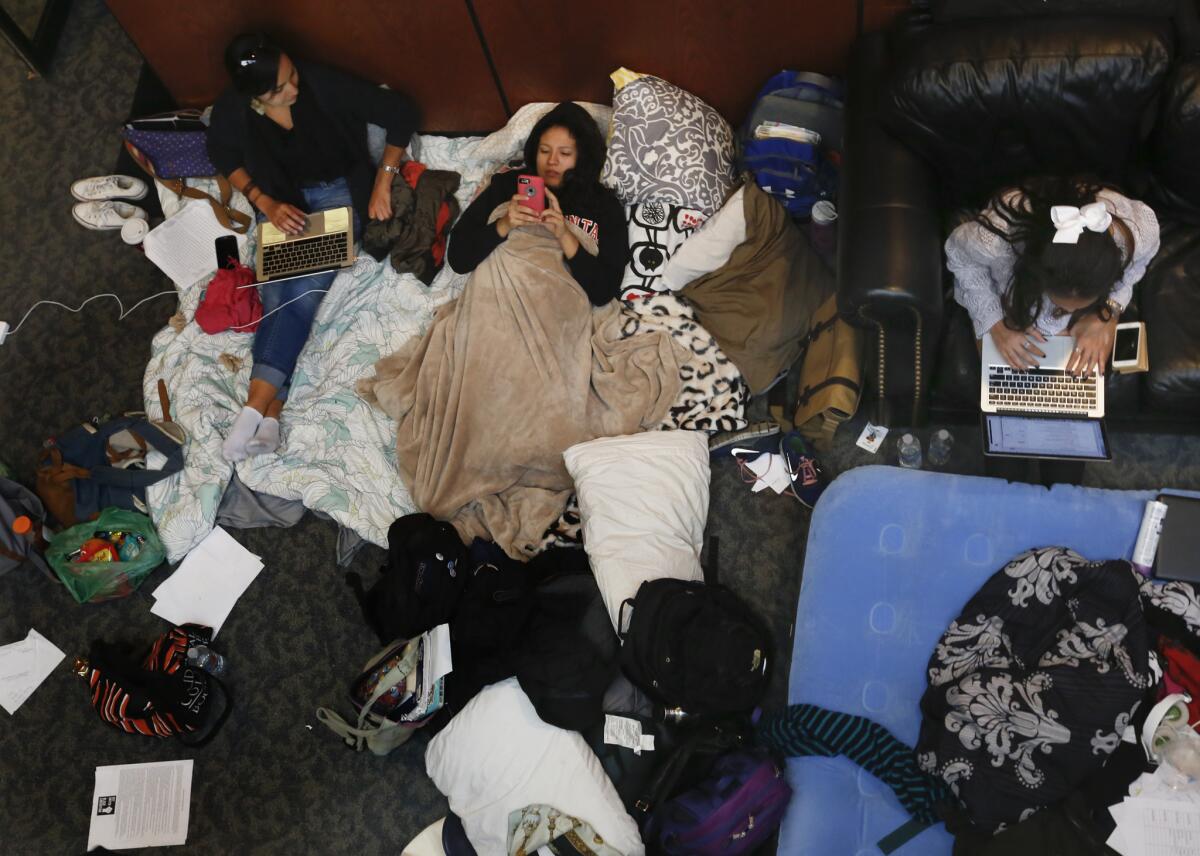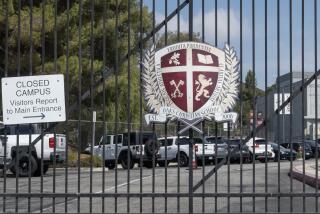Occidental College protesters to end sit-in, vow to keep fighting bias

Students at Occidental College in Eagle Rock announced that they would end their occupation of the Arthur G. Coons Administrative Center. They met with President Jonathan Veitch in a sometimes test Q&A session.
Student protesters at Occidental College announced they will end their weeklong sit-in by Saturday, vowing to continue their fight against racial bias at the liberal arts campus.
“While the occupation is over, the movement is not,” said Abhilasha Bhola, a movement leader and senior majoring in diplomacy and world affairs.
Since Monday, students have occupied the Arthur G. Coons Administrative Center, demanding greater funding for minorities, more diverse faculty and the resignation of President Jonathan Veitch, among other things.
The protests had started the previous week, when more than 500 students, faculty and staff held a rally for racial justice at Occidental and in support of other students of color at the University of Missouri, Yale University, Ithaca College and Claremont McKenna College.
Veitch refused to step down. But he announced he agreed with several of the student demands this week, including diversifying the faculty, creating a black studies program, increasing funding for diversity initiatives and training all campus staff on minority student needs.
All 80-plus faculty members who attended a recent meeting on the issues voted to support the student demands for more diversity.
Veitch announced Friday that the college would form committees to oversee progress on the diversity initiatives and to review campus safety practices by Dec. 15. Increased funding for the Intercultural Affairs Office, from $13,000 to $26,000, will be delivered by Wednesday, he said.
“We’re glad the sit-in ended as it began: peacefully and safely,” said Marty Sharkey, the school’s associate vice president of marketing and communications. “We look forward to working together with our students in the days and weeks ahead to meet our mutual goals.”
Students have invited Veitch to a meeting Monday to discuss how they would hold him accountable to his promises.
Bhola said she viewed the protests as a success despite the failure to force Veitch to resign. She said she was particularly thrilled by the increased funding for the Intercultural Affairs Office and the pledges to start a black studies program after what she said was four decades of requests for one.
“I believe students were able to shift the campus culture by starting conversations about racial justice and sexual assault and forcing people to recognize their privilege,” she said.
“I’m exhausted,” she added, “but definitely ready to do more.”
About 42% of the 2,100 undergraduate students at the Eagle Rock campus are minority or multiracial.
For more education news, follow me @TeresaWatanabe.
ALSO
What’s different about the latest wave of college activism
USC pledges new steps to increase diversity, multicultural understanding
Backlash brews against student race protests at Claremont McKenna College
More to Read
Sign up for Essential California
The most important California stories and recommendations in your inbox every morning.
You may occasionally receive promotional content from the Los Angeles Times.











